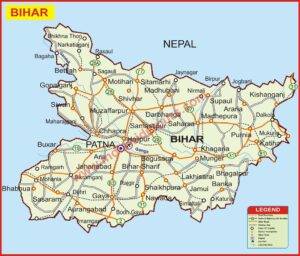Daily News Analysis- 19/10/2023
Hydrogen gear market in India
News: The hydrogen gear market in India is poised for exponential growth, with projections indicating that it will reach a staggering $50 million by 2030. This remarkable surge in the market can be attributed to India’s increasing emphasis on sustainable energy solutions and the rising demand for hydrogen-powered technology.
About Green Hydrogen
- A significant contributor to this growth is the burgeoning interest in green hydrogen, which is produced through renewable sources, such as wind, solar, and hydropower, and has minimal environmental impact.
- Green hydrogen not only serves as a clean energy source but also addresses climate change concerns, making it an attractive alternative to fossil fuels.
- India’s government initiatives and corporate investments in green hydrogen infrastructure are playing a pivotal role in driving this transformative change.
- As the world transitions towards cleaner energy solutions, the Indian hydrogen gear market is on the cusp of becoming a pivotal player in the global hydrogen economy, promoting sustainable development and reducing carbon emissions.
India Hydrogen Alliance
- The India Hydrogen Alliance (IHA) is a collaborative initiative formed to promote and advance the adoption of hydrogen as a clean and sustainable energy source in India.
- Established in 2021, the IHA comprises a coalition of companies, research institutions, and organizations committed to developing and deploying hydrogen technologies.
- The primary objective of the India Hydrogen Alliance is to accelerate the growth of the hydrogen economy in India by fostering research, innovation, and policy advocacy.
- It aims to address energy challenges, reduce carbon emissions, and create a greener, more sustainable energy ecosystem.
- The alliance focuses on various aspects of hydrogen, including production, storage, transportation, and utilization across different sectors, such as industry, transportation, and power generation.
- As India seeks to diversify its energy sources and reduce its carbon footprint, the India Hydrogen Alliance plays a pivotal role in facilitating collaboration among stakeholders and driving the development of a robust hydrogen ecosystem to support the country’s clean energy transition.
Krishi (agriculture) roadmaps in Bihar
News: In a significant move to boost agricultural development in Bihar, the President of India launched four comprehensive Krishi (agriculture) roadmaps during a special ceremony held in the state capital. These roadmaps are aimed at revolutionizing the agricultural sector by providing a strategic framework for sustainable growth.
- The first roadmap focuses on modernizing farming techniques, promoting precision agriculture, and ensuring better access to technology for farmers.
- The second roadmap emphasizes water resource management, with an emphasis on irrigation and water conservation.
- The third roadmap is centered around crop diversification and encouraging the cultivation of high-value crops.
- Finally, the fourth roadmap addresses post-harvest infrastructure, storage facilities, and market linkages to improve income and livelihoods for farmers.
- These initiatives are expected to have a profound impact on the agricultural landscape of Bihar, fostering increased productivity, reduced vulnerability to climate change, and ultimately elevating the socio-economic status of the farming community.
SC pulls up two from NCLAT, issues contempt notice: ‘Shows the rot there’
News: The Supreme Court’s decision to issue contempt notices to two members of the National Company Law Appellate Tribunal (NCLAT) highlights the growing concerns surrounding the functioning of this vital institution in India’s corporate and legal landscape.
- This move underscores the pressing need for accountability and transparency within the NCLAT.
- The NCLAT, established to adjudicate appeals from decisions of the National Company Law Tribunal (NCLT), plays a pivotal role in the insolvency and corporate restructuring process.
- However, recent controversies, including alleged mismanagement and delays in resolving cases, have cast a shadow on its effectiveness.
- The Supreme Court’s intervention underscores the necessity to address these issues promptly.
- Restoring faith in this institution is crucial for maintaining a fair and efficient corporate dispute resolution system in India, vital for economic growth and investor confidence.
About NCLAT
- The National Company Law Appellate Tribunal (NCLAT) is a significant judicial body in India formed under the Companies Act, 2013.
- It was established in June 2016 to hear appeals against orders of the National Company Law Tribunal (NCLT) and the Competition Commission of India (CCI) in matters related to corporate and competition laws.
- NCLAT is composed of a Chairperson and judicial and technical members. The Chairperson must be a retired or serving judge of the Supreme Court, while the judicial members are typically retired judges from various high courts.
- The technical members are drawn from the Indian Corporate Law Service.
- NCLAT operates under the Ministry of Corporate Affairs and plays a crucial role in resolving disputes and upholding the principles of corporate governance and competition in the Indian business landscape.
- It has become a key institution for businesses and stakeholders seeking legal redressal in corporate and competition matters, promoting transparency and accountability in the corporate sector.
Foreign Contributions (Regulation) Act
News: The Foreign Contributions (Regulation) Act, or FCRA, is an Indian legislation enacted in 2010, aimed at regulating the acceptance and utilization of foreign contributions by non-governmental organizations (NGOs) and other associations in India.
- Its primary purpose is to ensure that foreign funding does not disrupt the political, economic, and social fabric of the country. Under FCRA, organizations receiving foreign contributions must register with the Ministry of Home Affairs and adhere to stringent reporting and accountability measures.
- The Act has undergone several amendments to enhance transparency and prevent misuse of foreign funds. It empowers the government to scrutinize and potentially cancel an organization’s FCRA registration if they violate the prescribed guidelines.
- FCRA also establishes a comprehensive regulatory framework for the inflow of foreign donations, covering sources, utilization, and monitoring of funds.
- While FCRA aims to maintain the integrity of foreign contributions and their use, it has faced criticism for potentially inhibiting the work of NGOs and civil society organizations.
- Striking a balance between accountability and facilitating humanitarian efforts remains an ongoing challenge within the FCRA framework.







